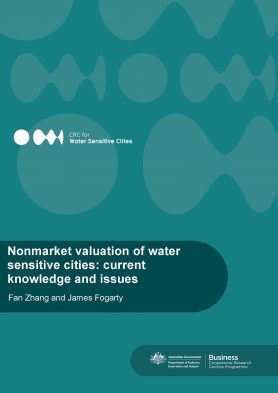Nonmarket valuation of water sensitive cities: current knowledge and issues
Abstract
This paper presents a systematic review of the application of the economic evaluation methods that are relevant to Water Sensitive Urban Design (WSUD). WSUD involves integrating the urban water cycle into urban design to improve water supply and environmental protection. The review considers four main WSUD-related aspects: improving and securing water supply requirements; protection of groundwater systems; management of wastewater; and environmental protection. The literature reviewed is grouped under these broad headings, and the evaluation method used to obtain information about non-market values. The advantages, disadvantages, and limitations of each non-market valuation method are also summarised and compared.
The review establishes that the two methods most commonly used to estimate non-market values for benefits relevant to WSUD have been contingent valuation and choice experiments (also known as choice modelling). Other valuation methods, such as the travel cost method, the averting behaviour method, the hedonic price method, and engineering methods have also been used.
For some areas of benefit that can be delivered through WSUD there is a reasonable knowledge base; yet in other areas the knowledge base is quite limited. The most appropriate way to generalise non-market valuation study results from one location to others remains unclear and is an area requiring additional research.
